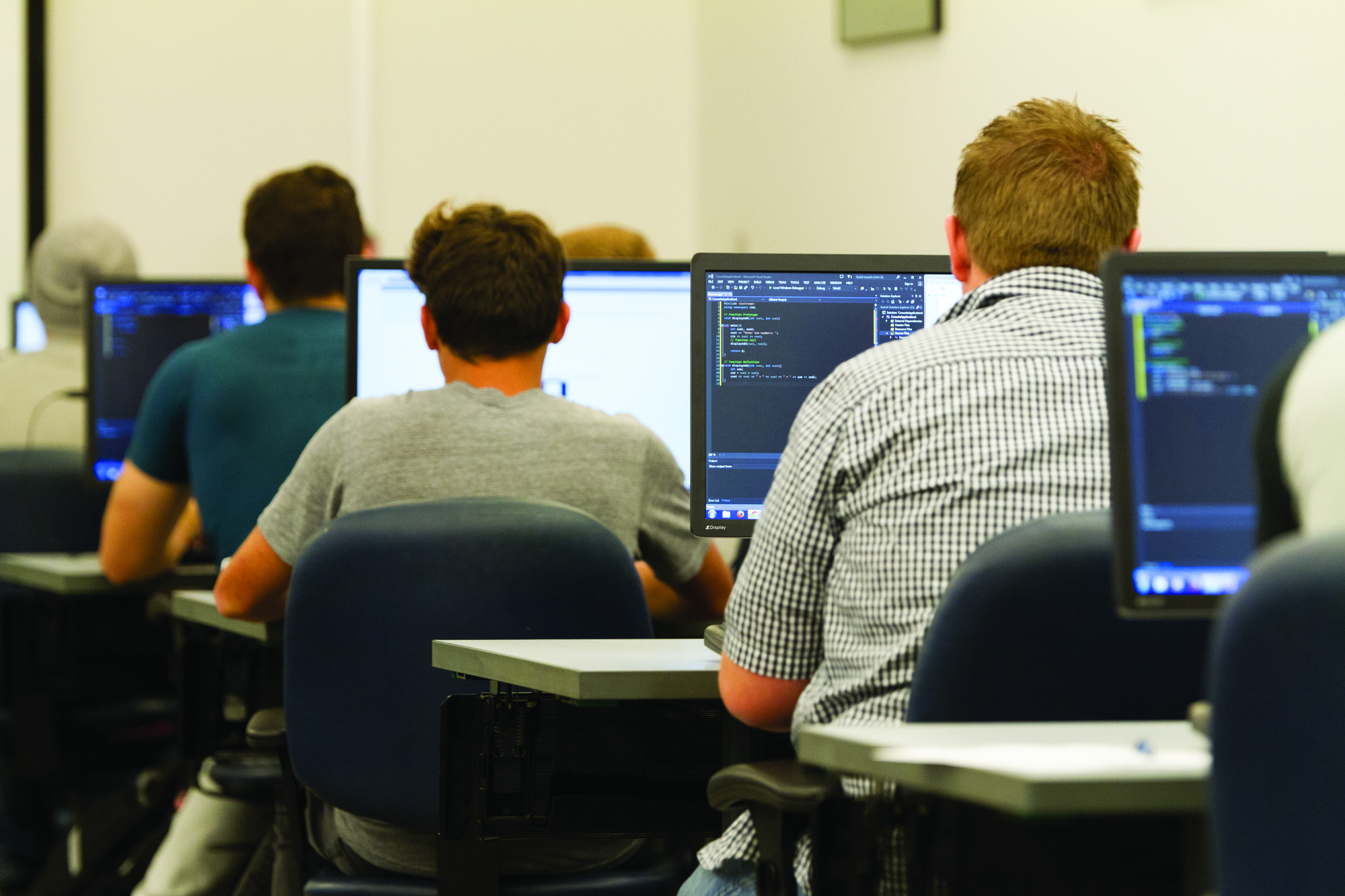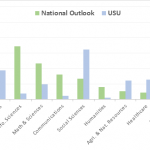Students make major decisions at USU
Most students attending college are interested in one thing: getting a job that will pay well.
The 2012 American Freshman survey conducted by the Cooperative Institutional Research Program at the University of California Los Angeles showed that 87.9 percent of freshman said an important reason for attending college was “to be able to get a better job,” and 74.6 percent said “[making] more money” was an important reason as well.
And for some students at Utah State University, getting a better job means finding the right degree.
College can be a stressful time for students. Most students spend their time trying to figure out what they would like to do with the rest of their lives and how college will help them accomplish their life goals.
Brandon Bailey, a freshman in computer science, was pursuing a degree in mechanical engineering and experienced a situation that many at USU can relate to.
“I came to Utah State after getting my associate degree and then was a little turned off to mechanical engineering,” Brandon said. “I got thinking about it and realized that computer science was a passion I had. It was in the same general field, and I was warmly welcomed in by the counselors and department head.”
A large number of USU students will be preparing to graduate in the upcoming semesters and open up a new chapter of post-college life.
During the spring 2015 semester, 2,516 degrees were earned at USU, excluding degrees in general studies and interdisciplinary studies. The graph shown represents a survey conducted by the National Association of Colleges and Employers, or NACE, for 2015 compared with these degrees.
NACE surveyed 223 employers across the nation to see which degrees they are looking for in their businesses. Many businesses responded with a need for more than just one major, and the grand total of sought after degrees has been shown as percentages in comparison with each other in the graph.
Those with the largest gaps are engineering, math, communications and computer science. Alan Hodges, senior in biological engineering and ambassador for the College of Engineering, said that retention is a problem when it comes to the gaps, but that it’s getting better.
“We see large enrollment, and we’re looking to see retention increase in the same way we see enrollment increase,” he said.
Professor Dan Watson, head of the Computer Science Department, said that the enrollment in the computer science program has doubled in the last four years.
“The field of computer science is rapidly expanding within our nation and in our economy,” Watson said. “One of the reasons why it’s expanding is because it brings elements of so many other things together — concepts of engineering and math and science and art — creativity. Computer science graduates are getting among the highest starting salaries of any majors at the university, and they have an extremely high hiring rate. ”
The degrees represented in the “other” column range from majors in theater and fine arts to English and deaf education, degrees many seek at USU. Although not typically sought after by most businesses, there is a market for such degrees.
According to the Center on Education and the Workforce, or CEW, at Georgetown University, unemployment for recent college graduates in the arts in 2012 was 10 percent compared to seven percent in business or 6.5 percent in engineering.
But this doesn’t mean art majors in Utah can’t find employment. Like graduates with other majors, getting a job takes networking.
“Theater is everywhere,” said Riley French, a sophomore in musical theater at Weber State University. “There are kids from Weber applying for jobs in Japan. There’s just a lot of starting out low and networking your way up. If a theater major doesn’t know how to network, he’ll get stuck in a low-end job.”
— houstonhyde@gmail.com


